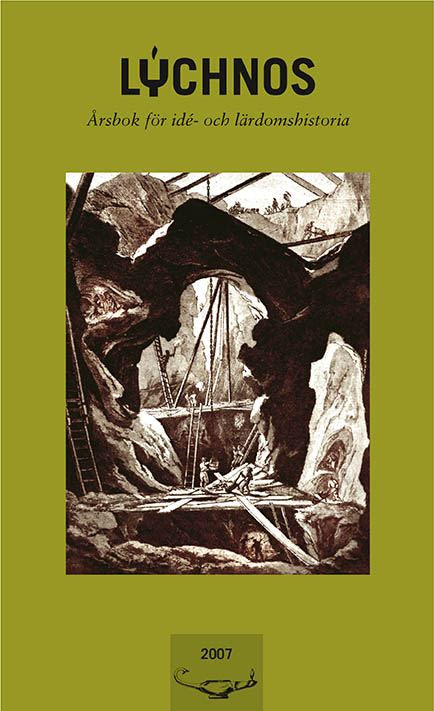The Nobel system
The Karolinska Institute, and the Nobel Prize in medicine to Hugo Theorell in 1955
Abstract
In 1955 Hugo Theorell was awarded the Nobel Prize in medicine for his biochemical research on enzymes. It was the first Nobel Prize in medicine to a scientist from the prize-awarding institution itself, the Karolinska Institute (KI), and it was followed by several others. The question of bias arises. In order to pass judgement on whether preferential treatment was at hand one has to take into consideration two circumstances. One is the development and standard of research in the field in question, here biochemistry, of the research organization, here KI. The other is the functioning of the Nobel system, both in general and in the specific case at hand, here Theorell.
The essay attempts to initiate a discussion of this by starting with a case study of the prize to Theorell, the source-material for which recently became available. Also, the career as a Nobel prize candidate of an eminent contemporary scholar in the same field as Theorell, but one who did not receive the Nobel prize, David Keilin, is examined.
Regarding the standard of research, the development of biochemistry at KI is traced from the 1920s. The focus is on two ”research entrepreneurs”, Rockefeller foundation and Einar Hammarsten, whose efforts contributed to the undoubtedly high standard at KI at the time Theorell got the prize. He himself also clearly was a worthy recipient.
Regarding the Nobel system one premise is that in order to understand the system one has to look beyond the Prize winners and examine the careers also of those who did not get the prize but were close. The careers of Theorell and Keilin are compared also with that of Carl Neuberg.
The Swedish research environment in the mid-20th century was quite small. Hammarsten and Theorell were among those few who evaluated Keilin. No apparent mistreatment of him is found, but in a sense he did not fit in with a Swedish ”national style”, i.e. a tradition known to focus on instruments and measuring.
Downloads
Published
Issue
Section
License
This work is licensed under a Creative Commons Attribution 4.0 International License. The copyright for the work published in Lychnos remains with the authors.


